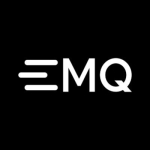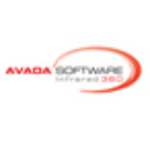
IBM MQ Valuable Features
MK
MykolaKuzmenko
SWIFT manager at Raiffeisen Bank Aval
The biggest advantage is that it's a reliable enough product which we use, and it's a highly documented product. We can learn it slowly, so we have experienced users and experienced staff to use this product.
We suppose it's secure because we use secure tools within the frame of this product, such as TLS 1.3 and so on. Its scalability is enough for our purposes, and that's all we can say about it.
View full review »AV
Ashok Vedantham
Dev lead at a financial services firm with 1,001-5,000 employees
The features of IBM MQ that have proven most effective for ensuring message delivery reliability are the stability of the system, the resilience and the product, which is definitely of top quality in this segment. This is a product which is very common, and many competent products are there, but it's time-tested, very stable, highly resilient, and has all the features to troubleshoot even if something goes wrong. It's the best from all perspectives.
View full review »
AC
KANCHAN CHALASANI
Software Engineer IV at Royal Cyber Inc.
With the setup that we have, financial transaction messages are not lost. We are primarily looking for a 100% quality of service in terms of non-repeating the message and message delivery. These are financial transactions, so we do not want to lose the message at any cost. That was the main reason why we have IBM MQ. Additionally, when dealing with posting financial messages to backend vendor systems, most of the revenue gets generated.
View full review »
Buyer's Guide
IBM MQ
August 2025
Learn what your peers think about IBM MQ. Get advice and tips from experienced pros sharing their opinions. Updated: August 2025.
865,985 professionals have used our research since 2012.
BK
Balaji K
Vice President - Senior IT Audit Manager at Northern Trust Corporation
The biggest advantage of IBM MQ is its reliability.
IBM MQ is reliable and includes important security aspects.
View full review »IBM MQ is more reliable and secure than other software. There is a saying that for the last 30 years IBM MQ has never been hacked. It is more secure and reliable. Whenever the configuration is done, I do not have to touch it again. It works fine, it is stable, and its communication is to the point and accurate. All performance-related aspects are better.
Performance-wise, it is scalable, and other features such as DR, DC, replication, and active passive mode are complex to configure, but it remains scalable.
The pricing model for IBM MQ could be more flexible for clients.
View full review »I work with CICs, Workload Manager, and DB2 mainly. I have experience with IBM MQ. We mainly use clusters at the Windows level or Linux level, and in the Mainframe, we have multiple paths and different lines of connectivity transmission to assess the impact of IBM MQ's high-availability configurations on our system's resilience.
We use advanced security features such as SSH for encryption and authentication mechanisms. The security features help protect our messaging data by encrypting the transmission and ensuring authentication for connection.
View full review »IR
Irfaan Rahim
Senior Software Test Analyst at CoCre8 Technology Solutions
IBM MQ processes many thousands of messages in a second, which is efficient for handling high transaction volumes. It is simple to use once you learn it, and the knowledge stays with you. It has contributed to better message transport compared to the Oracle-based solution we used before, which was slower. We have not experienced any downtime or crashes with IBM MQ.
View full review »
I appreciate the level of control we have over queue managers, queues, and the messaging itself. That provides good security.
So, the control and scalability of messaging are important to me.
Moreover, it is more reliable than other queuing mechanisms we've tried – things like ActiveMQ, RabbitMQ or embedded queues. We have more confidence in not losing data with IBM MQ.
So, I find IBM MQ to be a reliable solution.
View full review »One of the most crucial aspects for us is ensuring no data loss, and IBM MQ excels in this area, especially in banking environments where reliability is paramount. The feature I find most effective for ensuring message delivery without loss is the backup threshold. This feature allows for automatic retries of transactional messages within a specified threshold. For instance, if the backup threshold is set to five, IBM MQ will automatically retry sending the message up to five times. If unsuccessful, the message is then sent to the backout queue, indicating that it has been attempted multiple times. This flexibility allows us to handle message delivery failures by either discarding, logging, or retrying the message using mediation patterns.
The security features of IBM MQ have met our data protection requirements well. We utilize encryption with SSL keys to ensure data encryption. Additionally, many companies prefer using MQ connections with SSL challenges for added security. The integration with operating systems like Linux and authentication with Active Directory or Open Endpoint of Microsoft has made security configuration straightforward.
View full review »
I haven't used 100% of the IBM product. That said, the message transformation is very good. My application may not always be running, yet even if it is off, whenever I stick on my applications, I get all the messages that I'm supposed to get. Also, the sending functionality of the application may not always be on. I can keep sending the message, and they will get my messages when their applications turn on.
The initial setup is easy.
View full review »I really like the SSL support in MQ, which allows us to include certificates so the queue is fully secured and prevents man-in-the-middle attacks. It is easy to create a new queue, and the queue manager connecting to the remote queue works smoothly once the IP and port are included. These features benefit us by ensuring integrity and security.
View full review »RJ
Rahul Jayakumar Lekha
Integration Lead at a financial services firm with 10,001+ employees
The reliability is great. You will not see a case of a message loss in IBM MQ unless there's a queue full or there's some issue with the capacity of the queue. I haven't seen any issues with respect to the message loss. That's the main thing I like about MQ.
It's very robust.
It's a stable product.
Support is helpful and there is lots of good documentation available.
The solution can potentially scale.
View full review »AN
Alexey Nadenenko
Solution Architect at EPAM Systems
Using a message queuing solution, we had a banking solution that integrated multiple branches and interbank systems. Different systems for credits, debits, CRM, and others communicated through this message queue solution. It wasn't just about communication; for instance, a CRM application needed to collect information from various banking systems, such as account balances, properties, contracts, and credit cards.
These systems were separate, and the message queuing solution combined information from all of them into one message. When a request was made from a workplace for information about a person or company, the message queue infrastructure routed the request to all connected systems, ensuring the workplace did not need to be aware of all configuration details.
The product's most valuable feature is its ability to work in clusters. This allows for creating a cluster of message brokers, providing horizontal scalability. Another important feature is the extensive command-line interface, which allows for comprehensive monitoring and management of the system. This enables the creation of complex scripts to configure, making it a complete and very powerful tool.
View full review »RR
Rajender Reddy
Software Development Manager at Reliance Jio
The solution is fast with end data compared to other messaging tools.
With integration tools, the node is connected with the queue manager so there is some dependency. In the solution's latest version, the dependency was removed which allows us to create servers without any interdependencies.
View full review »I like the MQ's simplicity and rock-solid stability. I've never experienced a failure in two decades caused by the product itself. It has only failed due to human error.
View full review »SS
Sanjay Sahu
Project Manager at Capgemini
IBM MQ is robust compared to other products in the market. It also gives you support from the IBM team. We can connect to the IBM technical team in case of any production fault or errors.
For security, we have IBM MQ instead of any other products.
View full review »VM
Vjacheslav Mikitjuk
Director of Internet Technologies Division at IBA Group
The interface is good, and we work using API functionality in the main part of our projects. The solution is easy to understand and even medium developers can easily start using it.
The most valuable feature of IBM MQ is it has all the features necessary for contemporary messaging, not only for the financial industry but for any application.
IBM MQ has developed into some newer solutions. It has a message broker, it is now on the cloud, it has containerization, that has high availability features
View full review »The publish and subscribe features are the most useful aspects of the solution.
It's not too difficult to set up the solution.
It's stable.
Technical support is quite helpful.
The moment you send the data, there is no latency there.
We haven't experienced any data loss.
View full review »GT
George Thomas
Lead Architect at a financial services firm with 1,001-5,000 employees
All the features are valuable.
View full review »LL
Luis Lascano
Solutions Director at Thesys Technologies
What I found most valuable in this software is its reliability because messages that are sent into the queues are consumed by the other end of the connectivity. It has helped us maintain integration between two different systems, so that has been part of one of the layers of our architecture that communicates, for example, a back-end platform and back-end core system with a front-end platform. In our case, we are using the backend as a 224 banking system and the frontend we are using the Wall Street front office system. Those two systems are interconnected via the IBM MQ series.
View full review »The methodology and the way in which the platform has been produced as a standard is most valuable. There are so many different versions of it now, but the actual basic functionality and the simplicity of it have made it far easier to be implemented in so many different instances. When I worked with the OS/2 or PS/2 machine environment, the messaging mechanisms were based upon IBM MQ. It is so versatile, which is the main reason that I'm a fan of it.
View full review »There are so many good things with IBM MQ networking. So many complicated issues arise when you're trying to configure your network, and MQ helps by providing the clustering. In our project architecture, we have a cluster that distinguishes between major requests from applications. There is also a centralized cluster. Let's suppose 10 applications are connecting to that cluster. In each application, we add differently.
If I need to add multiple features to the centralized cluster, we can create another cluster. From there, the GMG is connected. Also, clusters can provide a backup. So suppose this solution faces some failure, like a power outage, MQ can automatically redistribute the load to other servers.
We are using the synchronizer and another module in our product. We are stepping the connection from the IBM channel. After that, we can send or receive any message. This is synchronizing. We are handling the clustering, and we have created a design for how the NP is built with the partner.
IBM is still adding some features and coding some other systems on the security end. However, it has the most security features I've seen in a communication solution. Security is the most important thing for our purposes.
View full review »The most valuable feature of the solution stems from the fact that it offers guaranteed delivery of messages to users. One good thing about the product is the guaranteed delivery since it guarantees that the message won't get lost. My company uses IBM MQ since we handle a lot of asynchronous modes of the design flow, and that is why we choose to use the solution to host the message before we proceed with the other sub-processes. The tool is effective in areas like message delivery and managing large message volumes. It is a very good solution.
The system integration is good.
View full review »We have found the security and monitoring capabilities of the product most valuable. The product helps us monitor messages with other queues, view duplicated messages and control undelivered messages so they can be stored in pack-out queues and restored. We like more than one feature in MQ as the product is secure. For example, we can exchange messages between all parties with a stake and have control of undelivered and unrouted messages. Furthermore, with a scheme of validation, we can report access.
View full review »It is useful for exchanging information between applications.
View full review »We like IBM MQ for our synchronous communications and transactional applications that require a lot of CPS.
View full review »It's easy to use and also quite compatible with all the language technologies where they can read messages and they can push messages to Java. It's easy to integrate and compatible with most coding languages.
The solution is stable.
I have found that the solution scales well.
The solution allows one to easily configure an IBM MQQueueManager. It's very easy and demonstrates comparatively better performance than that of other products. It is very good and makes it impossible to lose a message. These are very important advantages of the solution, but the greatest one is its robustness.
View full review »The solution is easy to use and has good performance.
View full review »Overall the solution operates well and has good integration.
View full review »I have found the solution to be very robust. It has a strong reputation, easy to use, simple to configure in our enterprise software, and supports all the protocols that we use.
View full review »RS
Rohit K Sharma
Ops Innovation Platform Manager at a financial services firm with 5,001-10,000 employees
Encryption and the fact that we have not had any data loss issues so far have been very valuable features. IBM MQ is well encrypted so that we are well within our compliance and regulatory requirements, so that is a plus point as well.
View full review »DP
DavidPui
Enterprise Architect & Solutions Architect at AIA Australia
I think the whole product is useful. Their database and all is very good, and the product is fine. The fact that it ensures message delivery is probably the most important thing. I also like that you're able to trace and track everything. If it doesn't arrive at the destination, it will go back to the queue, and no message will be lost.
View full review »JJ
Jitendra Jethwa
Websphere MQ Specialist at a maritime company with 10,001+ employees
The messaging queue is the main feature that we use. We use other products like publish and subscribe, which are very useful to us as well.
We can share data and other people can subscribe to it.
The solution is very stable.
The solution can scale well.
We've found the installation to be extremely straightforward and well laid out.
It's easy to maintain, easy to administer, and easy to see what's going on there. Overall, it's a good product.
Technical support is excellent.
View full review »The most valuable features I have found to be the message queue itself and its ability to bridge between mainframe type services to distributed services.
View full review »The most valuable features are RDQM and queue sharing.
There has been a lot of improvement in architecture. It handles better with the new architecture such as Cloud, and Cloud-on-premises integrations.
Also, how Kubernetes can be deployed is helpful.
View full review »PP
Prashant Powar
Senior Middleware Administrator at a tech services company with 501-1,000 employees
Currently, we are not using many advanced features. We are only using point-to-point MQ. I have previously used features like context-based authentication, SSL authentication, and high availability. These are good and pretty cool features. They make your business reliable.
For critical business needs, everyone uses only IBM MQ. It is the first choice because of its reliability. There is a one-send-and-one-delivery feature. It also has a no-message-loss feature, and because of that, only IBM MQ is used in banking or financial sectors.
View full review »Reliable messaging and throughput are the most valuable.
View full review »WK
Walter Kuhn
ICT Architect at a tech services company with 51-200 employees
The solution is very easy to work with.
The solution is very stable, it also offers transaction management and support.
The solution offers very good integration with other services. It's one of the great advantages of the service.
View full review »The most valuable feature is that it's a very strong integration platform and it is quite a monolithic solution. It's got everything.
At the moment we're trying to be a little bit more nimble in terms of how we deliver things for the business. We need to look at using some of the cloud-first as we have invested quite heavily in Azure. So we want to move away from all our legacy data centers and at the right time, we will move into the cloud as much as possible.
MA
Mohammad Al-Smadi
Product Development Manager at Arab Bank
The most valuable feature is the stability. It's perfect in this way.
View full review »AA
Abraham Ansah-Cudjoe
Unix/Linux Systems Administrator at a financial services firm with 10,001+ employees
The most valuable feature is the Queue Manager, which lies in the middle between our application and our core banking server.
Managing this solution is not difficult.
IBM MQ is very stable, which is important for our core banking application.
View full review »I like the whole idea. But the first things are its simplicity and its robustness. Compared to any other product, it's the most robust I've worked with. And it's extremely easy to manage.
View full review »SS
Sunil Sahoo
Manager at a financial services firm with 10,001+ employees
We have been using the normal messaging along with channel authorization.
At certain times — although not in this bank, in my previous experience — we had used the message authorization on top of the queue. That meant that the moment a user tried to write a message it would be authorized before it was written.
In the ESB architecture, MQ is used to decouple synchronous consumer specific web services calls from the host system calls, by implementing state management. Request and response message matching rely on MQ Message ID & Correlation ID (MQMD header properties).
Message load balancing being implemented using MQ or achieving high throughput, while Message affinity ensures response messages are propagated to the very same host system which had generated the request message.
MQ publish subscribe feature being used to for notification where multiple instance of one or more applications can subscribe to the same topic at different time.
Message expiry features ensures the redundant or unwanted messages are expired automatically from the MQ based on the settings. This feature is being used at times to ensure no duplication of payments.
Message persistence feature ensures the message availability even after any planned/unplanned downtime.
MQMFT feature ensures files are delivered asynchronously and complete file transfers are automated.
MQ authorization can help to ensure high level of security in accessing the messages from a MQ server or sending messages via MQ channels between two or more systems.
View full review »It is very stable. We haven't seen any failures.
View full review »The most valuable feature of IBM MQ is transaction processing.
View full review »This product has good security.
There is no data loss while transporting messages.
View full review »The MQ appliance has very good performance.
View full review »This solution offers good performance as well as scalability and stability. It offers a template that's beneficial for any company.
PT
Paulo Toscano
Database Administration Team Leader at a transportation company with 10,001+ employees
The subscribe and publish features are excellent. We use them a lot.
The usability of the solution is very good.
View full review »GT
George Thomas
Lead Architect at a financial services firm with 1,001-5,000 employees
IBM MQ deals mainly with the queuing mechanism. It passes the data and it publishes it. These two abilities are the most valuable features.
It's very stable.
It also has a backup queue concept and topics, features that I have not seen anywhere else. I like these features very much.
View full review »MR
Mohamed Ramses
IT Consultant at Ministry of Justice, Kuwait
SR
Srinivasa Reddy
Assistant Manager at a manufacturing company with 10,001+ employees
I like the architecture it provides seamlessly for assured delivery.
View full review »The clusterization which results in persistence is the most valuable feature. I only use a very small number of its features.
View full review »UR
Upendra Rao
Independent Consultant at State Bank of India
The reliability of the queuing is the most valuable feature.
View full review »The most valuable feature is the interaction within the system.
View full review »- Offers better reliability and monitoring compared to other tools.
- Integrates well with other IBM solutions. Therefore, it makes sense to use this product when a company has a large IBM solutions portfolio.
PM
PrabhasMishra
Technical Manager at MetLife
There are many things that I like about IBM MQ, such as, its performance and reliability.
View full review »- Clustering
- Multi-instance
From the time I joined this company I have been working with IBM MQ. Until now I haven't seen any severe issues related to it. Most of the time it's running. That is the advantage of IBM MQ.
View full review »What we find most valuable is the fact that we can decouple it from the application. If one side is down, but someone in the bank is serving a customer and needs to connect to an account, he can put in the information and wait. When the remote system comes up and connects, we can push messages with the push function. So what is quite useful is the asynchronous function which means we don't lose everything in the bank. Although we use a lot of things synchronously, asynch is the best thing so that no banking information is ever lost, even when the network goes down and comes up.
We can also expand it across many servers with the cluster, using load balancing and failover. We use that extensively as well. The load balancing works absolutely wonderfully.
Overall, it makes us very flexible in the architecture we can use at the moment. When someone comes to us and says, "I need ABC," we can put together the correct solution for him with all our flexibility.
We use Red Hat from a server point of view. With our Linux box, MQ is on the box itself. We use that quite extensively as well. Inside of that, we find the shared HA function quite useful. It allows us to do HA really quickly, compared to how things were before.
View full review »The MQ protocol is widely used across multiple applications and it's so simple for connectivity.
Other valuable features include the
- messaging format
- message persistence
- security features, including several connection channels and name-based and user-based authentication.
The message is delivered. This is the most important thing.
Overall, I have been satisfied with the solution's stability and scalability.
View full review »RH
Rene Haburai
Freelance at SÍŤ spol. s.r.o.
EC
Eduardo Cano
Architect & System Engineer at Servicio de Impuestos Internos
The high availability and session recovery are the most valuable features because we need the solution live all day.
The product gives us security.
View full review »JQ
Jan Quist
Software Engineer at Sita
The most valuable features are the point to point messaging and the MQ API. This solution is simple and very diverse.
View full review »RV
Ruud Van Zundert
MQ Engineer DevOp at ING
To be able to programmatically send information stored in 'messages' and send them securely, as well as the ability to check their contents and statistics when things go wrong.
View full review »I will say that, okay, we are coming from a long history as an IT company, and we have almost done queuing systems with other solutions. Moving from that implementation to something that is out-of-the-box, and the rave reviews, it was a great asset already. We didn’t have to worry about all the specific configuration, or installation of our own queue, and queuing system, and the brokers, and so on. It was some things a little bit out-of-the-box, that's why we like it.
View full review »Asynchronous messaging processing between the front-end and our legacy system using an enterprise service bus (ESB).
PS
Pavel Shcherbukha
Team Leader of the Development Team at IBM/IT-Innovation
Reliable integration between MQ servers. IT helps us create flexible integration solutions.
View full review »ST
Soumya Thomas
VP - Accelya Kale Solutions Ltd at Accelya World SLU
- Data integrity, reliability and security are very important to our business.
- No messages are lost, and recovery is good in case of any serious failures.
- No dependency on the end party service's run status.
BN
Balanna N
Architect at Franklin Templeton
The most valuable features are queue managers and CCDT, which is the common purpose of most client applications.
View full review »It runs everywhere, from the mainframe in the US to the PCs in the Gobi desert attached to an analog modem.
View full review »- Can process large amount of messages in a small amount of time.
- Integrates between distributed systems: For example, it can help integrate processing between mainframe, client-server, web-based applications by integrating the messages, supporting Service Oriented Architecture.
- It helps avoid rework by using already developed and working features of the application.
GB
Gurvijay Bhatti
Senior Solutions Architect at Department of Justice
Reliability of message transmissions and ability to replay messages in case message ends up in backout queues.
View full review »One of the most important features is data persistence. Anytime there is a failure or an unexpected outage, the data is still there. That is one of the biggest benefits of MQ on WebSphere.
View full review »Reliability is the most valuable feature. MQ is used to support critical business applications.
View full review »The message queue and the integration with any development platform/language, i.e., NET and Java, are the most valuable features.
View full review »MQ is one of the key integrations that we use for the z Systems to the open system connectivity. It helps us to transform the systems from the legacy enrollment to the latest technologies, as well. I'm part of the legacy transformations team and it provides really easy migrations, when it comes to integration with MQ. Any other integrations are a little bit challenging for us.
View full review »The way that we use MQ is just for messaging. We have various systems in our organization and we have various applications.
We use our routing feature when the request is coming from the business application. The request goes to the distributive side and it is routed to the right claim instance.
We use MQ in between for messaging. We process the messages we receive and we send the responses back to whoever sent us the message.
That person or application basically picks up the response and distributes it to whoever requested it. The way we design the environment of that instance can leverage any of the environments.
View full review »We use MQ as part of the core of our enterprise information bus. We started that journey in 2009. We have it both on the mainframe and in the mid-range. For us, by allowing messaging to integrate with some of our third-party solutions, like for web banking and so on, we are able to create an information highway that took in the legacy events, captured ATM and credit card transactions, and integrates that into a digital web dashboard.
View full review »It's wonderful and is our primary backbone for moving data across different applications, within our company. Especially when we're talking about the healthcare and pharmacy industries, where we have patients' critical data, this is what we use to move data across. It's our backbone for data transmission.
The important thing for us at this point is the amount of data that we move, the guaranteed delivery and message affinity that it offers. These are very critical features when you talk about patient data.
View full review »The most valuable feature of this product is that it provides guaranteed message delivery. This is important for us because we want to have guaranteed message delivery and integrity; we cannot lose that message.
View full review »It allows data transmission from multiple platforms in a fault-tolerant manner, that's the biggest feature. It is important for us because we do a lot of data transformation and data transmission between different systems; that's one of the biggest things that we do.
View full review »What I like about IBM MQ is that the ability to add applications to it is quite simple. There are a lot of extensible options for security, i.e., various things you can do. It's pretty easy to navigate. It's pretty easy to install and use from that perspective. Those are the things that I really like about it. It's our web hosting application of choice over using something like Tomcat or whatever because you can click through it, you can see things, and it's a lot easier from an administrative standpoint.
View full review »The pub/sub model is the one that we use heavily on IBM MQ. That's the most valuable for us. We are an enterprise team and we provide a lot of integration to the enterprise systems, so when the data changes on the enterprise systems, we publish a lot of these changes to all the subscribers, whether it's a customer change or the account changes.
View full review »Most valuable for us are the queue depths and creations for the installations. Being a business in financial solutions, we depend on it more for those things, so it's very valuable for us. For most of the applications like JBoss and others we use IBM MQ.
View full review »We can do the authentication and authorization of incoming requests using IBM WebSphere and DataPower. That's important to us because we can confidentially send the data with restrictions to other platforms.
View full review »For the IBM MQ solution, the most valuable feature is the interconnection of data between the different systems. In our company, we use mainframe, Windows, and Unix and it provides communication with different plans like associations and the federal employee plan. That's what we're looking for.
The main feature right now that we're looking for is open source and that is where we see more challenges coming up with the product. This is because a lot of the applications are going with open source such as cloud and providing connection with the cloud. We have Amazon AWS cloud services or Microsoft Azure services and the applications are deployed there, so connectivity with those type of applications is necessary.
View full review »The most valuable features are the transactional semantics around messaging, and some of the reliability that they have built-in, from disaster recovery and deliver-once, and at most months, schemes for messages.
View full review »MQ is a very affordable and easy to use messaging product. I like how fast you can write an API and send a message. Thus, its versatility, portability and easy to use functionality are valuable features of this product.
View full review »Basically 100% message delivery and how easy it is to integrate the system to another system / .NET / Java applications are the most valuable features. It provides 100% guaranteed message delivery, so you won't lose any messages, even in the event of a MQ failure.
View full review »It's ability to scale, it's ability to do guaranteed delivery and it's ability to do point-to-point of what we subscribe are the most valuable features. And finally, it's ability to handle messages in various formats and structures.
View full review »The integration between applications is the most valuable feature. We can use it with multiple applications.
View full review »So far, it's helped us with our Maximo integration between the users and the database administrators. I know we kind of lagged behind on some updates, which caused us problems. We recently upgraded, which had made things a lot easier, got rid of some of the issues we had with the older versions.
View full review »It's certainly a product that you can rely on. It delivers the stability and security within our applications that we desire as an organization.
View full review »Guaranteed delivery of the messages and then the ability to scale the messages the way we need it according to our application, performance, and scalability.
View full review »Ease of use and ease of setup. I'm an admin type, and I can set things up from the command line, and I can set things up through a GUI. It's easy to work with.
View full review »The most valuable feature of IBM MQ is that it is robust. Its dependability and reliability are its most valuable features.
View full review »For MQ, the most valuable feature is our ability to connect our distributed systems back to the mainframe, and pull our legacy data out of the mainframe and bring it down into a modern Java front end.
View full review »The major thing we like about it is zero transaction loss. The other thing, which is a plus point, is first in, first out (FIFO). You can be pretty sure that if MQ goes down for whatever reason, the transactions will still sustain; they won't be lost. There is a drawback when, once a transaction touches the other point, it is lost, in the sense that if you don't process it, but that is fair enough.
View full review »Its scalability and uptime is very high. So, these are the two main valuable features of this product. We rarely see any downtime on MQ's side of the product.
View full review »The most valuable features of this solution are its reliability, efficiency, and the capacity to bring value.
View full review »It's good for messaging, very reliable, and forward compatible, so it makes our life easy when it comes to upgrades.
View full review »WebSphere messaging, clustering and security are the most important and most valuable features.
Security is the most important thing right now. Nowadays, you can see people are hacking into systems to steal customer data. MQ has very good security features and it supports very good protocols.
View full review »It doesn't lose transactions, it's fast, and it runs on every platform.
View full review »The scalability of the environment is the most valuable feature. We also like the speed and the manageability of this tool.
View full review »The most valuable features are the integration services in the company.
View full review »It can be managed from a web page.
View full review »It makes it very easy to update and define queues, look at messages, queue depth, and queue properties. We use it in conjunction with the integration bus for testing and development.
View full review »The messaging and the security are the most valuable features. We can find everything in queue, because that's the basis of our business.
View full review »The number one thing is it's pretty reliable with data integration. It gets done what we need to do; transport messages from source to destination.
View full review »I've used other solutions, but the most valuable features of this solution are the search capabilities, consolidating the data and searching through the data. I think that these are some of the key things.
View full review »They keep on increasing the solutions such as for message synchronization. They have really improved it a lot, with major clustering and the high availability that it can do now. I'm still deep diving into the latest version right now. We have been using this solution for a really long time.
View full review »We use MQ just for transferring messages to and from applications. We get subscriptions, queues, topics and all the app teams love it. It is an easy way to transfer messages, so that's commonly used as a solution for us.
View full review »We use the WebSphere and also use the IBM Maximo Enterprise Management System. The most usable functionality for us is just for tracking work orders and work requests, so that we can provide better customer service.
View full review »- Support for JMS 2.0, because we develop solutions compatible with Java EE7.
- Seamless integration with IBM WebSphere Application Server, which is the most stable application server I ever worked with.
- Installed and configured at Windows, AIX and IBM i mostly the same way and set of commands.
Its integration capabilities and the security features are the most valuable features of this product.
View full review »It allows us to process online transactions for our customers and we can connect between open system platforms and CID platforms. I think this is the most important.
View full review »Helping us with speed to market; that's really what IBM's solutions are helping us do.
View full review »Specifically for MQ, the most valuable feature is the ability for us to deliver messages between applications using the MQ message queuing.
View full review »For us, it's basically just our messaging bus. We pretty much use it just for events that are limited to various applications that we have in our company. That is pretty much the use case that we have with respect to the IBM MQ.
Also, the stability and reliability of the tool system is what makes it really easy to be able to work with.
View full review »I like its ease of administration. We just recently moved to the MQ appliance and the high availability (HA) feature is outstanding. We're really, really pleased with it and the power of the appliance itself. When you throw more work at it, the faster it goes.
For example, when you're doing maintenance, you can fail over the entire group of queue managers in that HA group or you can fail them individually if you'd like. So, it's very helpful that way. But that's the manual fail over. The automatic fail over is what we are really interested in. We did have an appliance go down. Everything failed over and none of our clients knew of it. So it was very good. We were very pleased with that.
The user interface is good. The command line version of it, MQ CLI, is good. The web user interface is really handy; really a good feature.
View full review »There are a lot of valuable features, such as high availability, and workload balancing. Those are the main two.
View full review »The thing that I like about MQ most is its reliability. It's one of those types of products that just works. You don't have to tinker around with it too much. One of the biggest things that I really look for in a product is from a reliability perspective. Can I count on this to be up 24 hours a day, and do I have to keep hacking around with it? MQ is definitely something that is really reliable, so it's something that I really appreciate it.
View full review »The asynchronous messaging and the assured delivery are the most valuable features because your data needs to make it through from one app to the other, and you don't want to lose it.
View full review »- Ease of use
- Access to support resources
- Access to new release information in a timely manner
- Easy to digest
It's rock solid. It just works. We have to have guaranteed delivery and support. Support is solid as well, knowing that IBM is there. We looked at some open-source products and other competitors, and at the time that we made the decision, IBM was the one that had the largest support structure. Rock-solid performance really is the most solid feature of it.
View full review »It is very robust and very scalable.
View full review »It can do messaging throughout multiple platforms. That's the major benefit for MQ. At the same time, we use it quite extensively to do messages between the iSeries and the mainframe.
View full review »Stability and reliability are the most valuable features. It's very reliable and very stable. You can do a fast recovery in case of any failure. It's a very consistent and stable system.
View full review »I inherited it when I took over administration of a platform. It is pretty core in our business. I haven't really dealt with configuration that much. It is used to push transactions throughout z/OS, IBM i, Windows, and Linux. It seems to be pretty reliable. It's one of the few things we have that just runs, almost to a point where you forget to go back and do some upgrades. We're running a couple versions that are a little old, and you just forget that; like, "Oh yeah, it's running." It's pretty solid.
View full review »For Rogers, MQ is the cornerstone for the billing system for cable. It's accessed through the help desk and through the online stores. It's a very valuable piece of software that interfaces with the customers; there are well over 8 million customers.
View full review »Obviously, the biggest thing is that we’ll never lose a message. We use it for a lot of real-time information between our systems for integration, where we cannot lose data during that point in time, because then we lose track of inventory, our manufacturing systems, sales orders and things like that.
View full review »The integration it provides makes a lot of stuff easier. There are a lot of ways to integrate things but it works on a lot of different platforms and with a lot different technologies.
View full review »The multiple queuing features, so that everything that we use for talking to our reservation system, the main system we use it for; whatever systems that are sitting on Linux or other environments such as AIX, and then talking to iSeries, which is our “mother ship”, the reservation system. The most valuable features are being able to handle those multiple queues and being able to scale properly.
View full review »I think the most valuable feature is the scale that it can run at. It runs millions of transactions in our environment on a daily basis, scales and works well.
View full review »- Guaranteed message delivery
- Easy to use
- Works for both distributed and host applications
We use it in a number of our applications for message queuing. As a broker dealer, it gives us the ability to queue things up and to send them out at a different time; and it works really well. We go to different reports, and get options and other features from other areas, so we need to queue up the MQ piece of it, have it wait, and then release it when we're ready to release it. That's a great feature.
View full review »Scalability and guaranteed delivery are the most valuable features. It's pretty straightforward to scale out. We use MQ to back our enterprise service bus. Guaranteed delivery is very important for most of the data that we send. Having a product that enables that is very valuable to us.
View full review »The most valuable feature is the fact that it's guaranteed delivery; it's conversational. A lot of our transactions are basically transactions back and forth between either rewards members, reservations and even between our databases. MQ gives us guaranteed delivery.
View full review »We use it right now for transferring a lot of big files. Sometimes, for some reason, the file doesn't get all the way to the other side. We do it between different cities. MQ keeps track of it and gets it all done. We at least know if it was half-done or not. We also have scheduled jobs through ESB, but it doesn't send that kind of notification to us. It says whether the script has run or not run. That's all we get. This has been a better product.
Besides that, we do a lot of our jobs through it. We queue them and run them.
View full review »For us, the most valuable feature is the fact that we can move data from disparate systems quite easily. It's not a mountain of data for us, because of the nature of our business, but it's critical that we move information through the queues, from many varying different systems.
View full review »Integration with my vendor product is the most valuable feature. The vendor strongly prefers MQ. We had a lot of configuration issues when we tried other products. The second-most valuable feature is the stability.
View full review »The most valuable features are messaging between applications; sending messages. We use it a lot to communicate with the IBM SIS service.
View full review »For me, the most important features are its interfaces with RACF and how we can set up the security to allow and disallow who can get to it, who can use it; and then what MQ gets to do on the mainframe and what it does not get to do, basically.
View full review »It's one of our core parts of a middleware platform for integrating our CRM billing application and our online transaction application as well. That's the key usage for day-to-day activities.
View full review »The most valuable feature is the ability to connect our different systems fairly seamlessly. Without it, I don't know how we would have connected our mainframe Intel-based systems and Power Systems together. It's the tool that we utilize to make it happen.
View full review »It's fairly easy to set up and configure. It's very effective as far as what we need to do with the type of processing that we're trying to get done, message-based processing. It is easily replicate-able. We have tons of servers that actually handle different queues; it's very helpful with that.
View full review »One of the most valuable features is the standardization in terms of messaging; if you have MQ, you probably can talk to anybody. That's one thing: its compatibility. The other one is its stability.
View full review »The most valuable feature is its stability because we're in the financial services; message persistence and reliability, speed, performance. Those are probably the key attributes that we appreciate.
View full review »The most valuable features are content security and content delivery, from a whole network protocol perspective.
It's adapting itself to get into every single component throughout the entire world being Java enabled.
View full review »The most valuable feature is primarily seeing the messages as soon as I log in; being able to see in real time that information.
View full review »Its ability to transfer large volumes of data reliably.
View full review »The most valuable features of IBM MQ are its guarantee of delivery, ability to handle high volume while maintaining high availability, and robust security measures such as SSL, TLS, and RBAC.
View full review »RV
Rajaraman V
Enterprise Architect at Enterprise architecture Tool
IBM MQ is highly scalable and has a reconciliation mechanism. These are the two main reasons we use IBM MQ.
VP
Vlad Popa
Integration Consultant at a tech services company with 11-50 employees
We have found the MQ messaging topologies valuable mainly the published, subscribe and direct messaging. A feature that no other market could offer at the time was data-addressed encryption.
DS
Dameer Siddiqui
Works at a tech services company with 11-50 employees
The solution offers very good features, including listener channels, remote queues, and transmit queues.
The solution is stable.
The initial setup isn't overly complex. It's pretty straightforward.
Technical support is very good.
View full review »This is a good and stable product, It assists with our applications and has great message processing with zero loss of messages.
Buyer's Guide
IBM MQ
August 2025
Learn what your peers think about IBM MQ. Get advice and tips from experienced pros sharing their opinions. Updated: August 2025.
865,985 professionals have used our research since 2012.


























